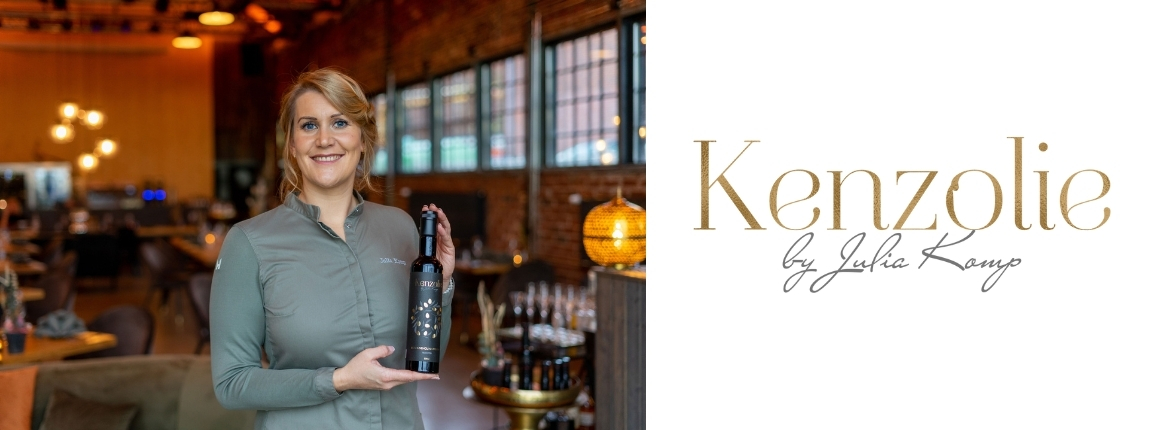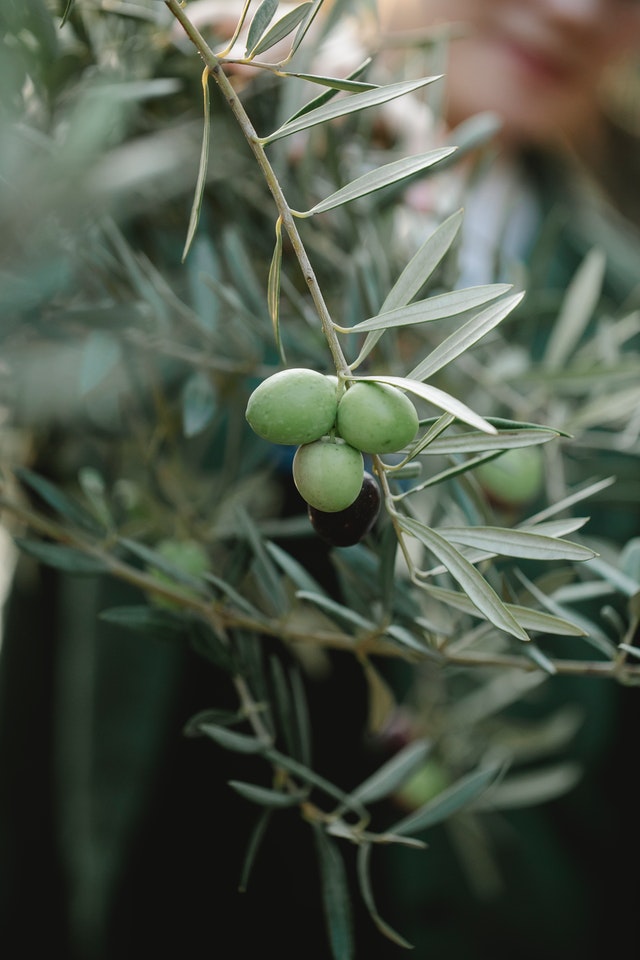
Why Germany’s Youngest Michelin Star Chef Chooses Biophotonic Packaging
As a Michelin star chef, you have a differentiating factor in the restaurant world. The origin and quality of ingredients are crucial, and aromatic oil is one of the key ingredients in Julia Komp's culinary creations. In her search for the perfect olive oil, Julia ended up in Tunisia. She selected a traditionally produced olive oil that is hand-picked and crafted with great respect for nature, using organic farming methods. In the chef’s eyes, the entire process from sourcing to consumption is important, including choosing the right packaging.

A Tasteful Journey
Food has always had a special place in the life of Julia Komp, who was named Germany's youngest Michelin star chef in 2016 and chef of the year in 2020. From a young age, she has spent many summers in Tunisia, and one of the vibrant memories that she has of this is that “the food and especially the olive oil were amazing! The residents even visited their local farmer to buy freshly produced batches.” This experience, combined with the fact that it is difficult to source oil of the same quality in Germany, prompted Julia to start sourcing her own products. “I took up the challenge of finding the best olive oil in Tunisia and importing it to Germany. In the end, I found a family business producing organic oil with a fantastic flavor and excellent quality. This became my “Kenzolie” oil which I now sell online and in selected supermarkets.”
Although food has always been enjoyed, it wasn’t until Julia did an internship in a hotel that she discovered she wanted to become a chef. “I saw the sparkling in the guests’ eyes when they were enjoying a great dish. I love that being a chef is a very international job – you can practically work from anywhere. In addition, every day brings new surprises, and I can express my creativity”. From that moment on, her career developed. From internships to apprenticeships, and “gold-plated” national and international competitions, to being awarded a Michelin star. On top of that, Julia has demonstrated her entrepreneurial skills with her own organic olive oil brand and her brand-new restaurant.
The Key to Preparing a Michelin Star-Worthy Dish
“The fundament of a Michelin star-worthy dish is quality. I source my ingredients very carefully, and they are to the extent possible organic. During my journey around the world between 2018 and 2020, I was lucky to meet great suppliers. It is important to know where the food is from. I also source many ingredients from local farms in Germany. However, more effort is needed to be awarded: it takes creativity, an own cooking style, and teamwork. In the end, the guest shall experience an explosion of taste. It does not have to be truffle or caviar. Even simple ingredients can become very tasty if the right spices are added.”
It is interesting to note that the olive has been part of the human’s diet for many millennia. In fact, “People have been cooking with olive oil for almost 8.000 years”. Olive oil of high quality contains many health nutrients – it is, therefore, no surprise that the Mediterranean diet is so famous. In the kitchen, the ingredient is used for cooking, frying, and refining. But for Julia, olive oil is indispensable in the top cuisine and for a good reason: “Many olive oils you can buy in supermarkets taste rather boring, I call them lame ducks. However, an oil of high quality has an extraordinary taste and preserves the taste of high-quality ingredients. In the top cuisine, we want to create wow moments – a great olive oil helps to achieve that. Personally, I am also a fan of the oriental cuisine, which is traditionally based on olive oil. A very good oil is a must there.”
In Julia’s kitchen, the chefs make use of two types of oil: a mild one - characterized by its lighter taste and often used for salads, steamed vegetables, and risotto. And a fruity one, which is spicier and is characterized by its extraordinary taste. This oil is often used while preparing fish, seafood, and wild vegetables. “To support the shelf life of the oil, we at Kenzolie have chosen a high-quality bottle made of violet glass. Violet glass protects against the harmful rays of light. The taste, aroma, and color of the Kenzolie olive oil are thus preserved for longer.”


Recognizing and Preserving Quality
In her search for the perfect oil, Julia came across a rare combination of very low free fatty acids (~0.25%) and high phenolics content (>200 mg/kg) that is very hard to find. “When I compare various flavors, I usually look for a balanced aroma profile, both for the mild and fruity bottles. The final step is, of course, testing the oils in specialized laboratories to make sure we meet all the regulatory requirements. Since we spent so much effort to reach this high quality, it was obvious to choose glass that protects the contents of the bottle.”
So, in terms of quality, Kenzolie’s olive oil can be classified as premium. And “a premium product should also come in a premium packaging. Therefore, I had to undertake everything to preserve the quality. Olive oil must be stored in a cool and dry place. We came across MIRON’s biophotonic packaging a few times in the high-end gastronomy when selecting a bottle. After testing it, I was convinced that a premium oil’s quality and taste are best preserved in such a special bottle. In addition, it also looks amazing. The shape and dark color attract a lot of attention. In our experience, the Kenzolie olive oil keeps the freshness, smell, and intense green color for a very long time.”
The Cherry on the Cake
Inspired by Julia’s tasteful journey? Then it is your lucky day. This brilliant young Michelin star chef has written down a mini recipe that you can easily make at home:
For delicious roasted vegetables, lightly heat some olive oil in the pan. Add spices, garlic, and onions. Steam briefly and then add fennel. Deglaze with a sip of broth and then steam with a lid on. Under low to medium heat, the vitamins from both the vegetables and the oil are well preserved.

Photos by Michael Breuer, Marvin Evkuran, Marko Seifert.
